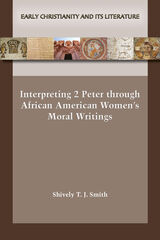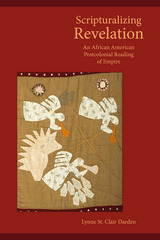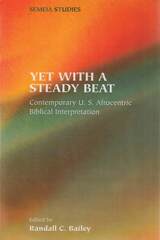

How Barbara Jordan used sacred and secular scriptures in her social activism
US Congresswoman Barbara Jordan is well-known as an interpreter and defender of the Constitution, particularly through her landmark speech during Richard Nixon’s 1974 impeachment hearings. However, before she developed faith in the Constitution, Jordan had faith in Christianity. In “My Faith in the Constitution is Whole”: Barbara Jordan and the Politics of Scripture, Robin L. Owens shows how Jordan turned her religious faith and her faith in the Constitution into a powerful civil religious expression of her social activism.
Owens begins by examining the lives and work of the nineteenth-century Black female orator-activists Maria W. Stewart and Anna Julia Cooper. Stewart and Cooper fought for emancipation and women’s rights by “scripturalizing,” or using religious scriptures to engage in political debate. Owens then demonstrates how Jordan built upon this tradition by treating the Constitution as an American “scripture” to advocate for racial justice and gender equality. Case studies of key speeches throughout Jordan’s career show how she quoted the Constitution and other founding documents as sacred texts, used them as sociolinguistic resources, and employed a discursive rhetorical strategy of indirection known as “signifying on scriptures.”
Jordan’s particular use of the Constitution—deeply connected with her background and religious, racial, and gender identity—represents the agency and power reflected in her speeches. Jordan’s strategies also illustrate a broader phenomenon of scripturalization outside of institutional religion and its rhetorical and interpretive possibilities.

A fresh contribution to the growing body of New Testament scholarship on empire, both ancient and modern
Darden’s reading of Revelation examines John the Seer’s rhetorical strategy, in general, and imperial cult imagery in chapters 4 and 5, in particular, through the lens of an African American scripturalization supplemented by postcolonial theory. The scripturalization proposes that John the Seer’s signifyin(g) on empire demonstrated that he was well aware of the oppressive nature of Roman imperialism on the lives of provincial Asian Christians. Yet, ironically, John reinscribed imperial processes and practices. Darden argues that African American biblical scholarship must now attend adequately to these complex cultural negotiations lest it find itself inadvertently feeding the imperial beast.
Features:
- Relates the potential for African American cooption by the U.S. Empire to the cooption by the Roman Empire both thematized and performed in Revelation
- Book-length study on postcolonial African American biblical hermeneutics
- A reading supplemented by postcolonial theory that better addresses the hybridity of African American identity

READERS
Browse our collection.
PUBLISHERS
See BiblioVault's publisher services.
STUDENT SERVICES
Files for college accessibility offices.
UChicago Accessibility Resources
home | accessibility | search | about | contact us
BiblioVault ® 2001 - 2024
The University of Chicago Press









